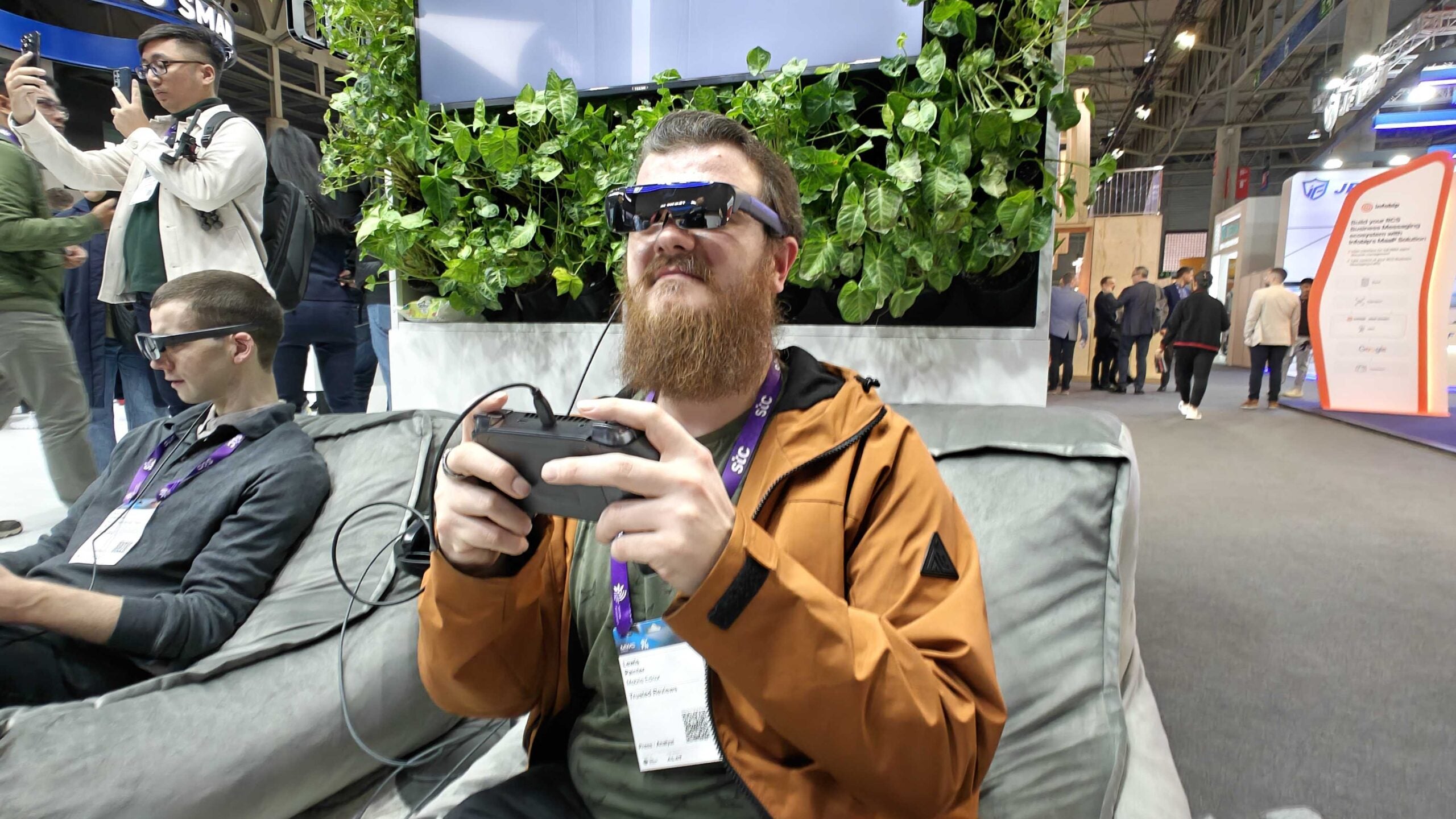The Humane AI Pin is cool, but phones aren’t going anywhere

OPINION: After months of seeing videos and teasers about the AI-powered pin, I finally got to see the Humane AI Pin for myself at MWC 2024. It’s an incredible feat of engineering that’ll likely find its niche in a growing smartphone accessory market, but this isn’t, as some have suggested, the replacement for the smartphones we know and love.
The Humane AI Pin is an interesting concept; it’s a square-ish plastic pin that sits on your chest, magnetically attached to your t-shirt like the Insta 360 Go 3 action cam to avoid making holes, of course. It looks largely unassuming, available in a handful of colour options, but things get interesting once you wake it up.
I’d like to think of the Humane AI Pin as Google on your chest – though I’m not sure Google would appreciate that analogy – as it uses on-device GenAI capabilities to provide you with information in a conversational way, much like you’d expect from the likes of ChatGPT and Google’s own Gemini assistant.
It can handle general knowledge queries, currency conversion – with one demo at the show getting a conversion from US Dollars to Euros without telling the Pin where we were in the world – and like a growing number of GenAI models, it can handle real-time translation too, though there was still quite a delay between speaking and translating in my MWC demo that would stilt an actual bi-lingual conversation.

There’s even a built-in camera that can be activated by a tap of the touchpad or controlled via voice input, providing a more natural way to capture photos and videos without focusing on your phone. It’s an idea that works exceptionally well on the Ray-Ban Meta Glasses, and I expect people to appreciate it just as much here.

Galaxy Z Flip 4 is now a budget phone
The Galaxy Z Flip 4 foldable might be getting a little long in the tooth, but it’s the perfect time to get a great deal on this stellar foldable – now just £459 at Amazon.
- Amazon
- Save £600
- Now £459
The most Sci-fi aspect of the Pin, for me, is its projection capabilities. Using a built-in system, it can project simple graphics like time, battery life and other information to the palm of your hand if it’s positioned correctly in front of the Pin.

Frankly, it’s not that great. It reminds me a lot of the Oppo Air Glass 2 smart glasses I used at MWC last year, complete with basic graphics and a single green colour, which makes it less than ideal to, say, preview that photo you just took,.but I imagine this is something that’ll improve drastically as tech gets smaller and more powerful.
So, yes, the Humane AI Pin is cool – very cool, in fact – but it won’t be replacing the humble smartphone anytime soon, if ever.
Elements like a conversational chat assistant and a built-in camera are very handy, but even with better projection technology, I can’t see many people ditching the stunningly high-res screens and capable cameras that most modern smartphones have for something like that.
Instead, I foresee a future where the two are used in conjunction with one another; the Humane AI Pin for basic queries, quick phone calls and snaps, while a phone continues to be the ‘main’ device for most.

Of course, I could be totally wrong. We could be headed towards a Star Trek communicator-style world and I’m just a bit of a Luddite, but I doubt it.







